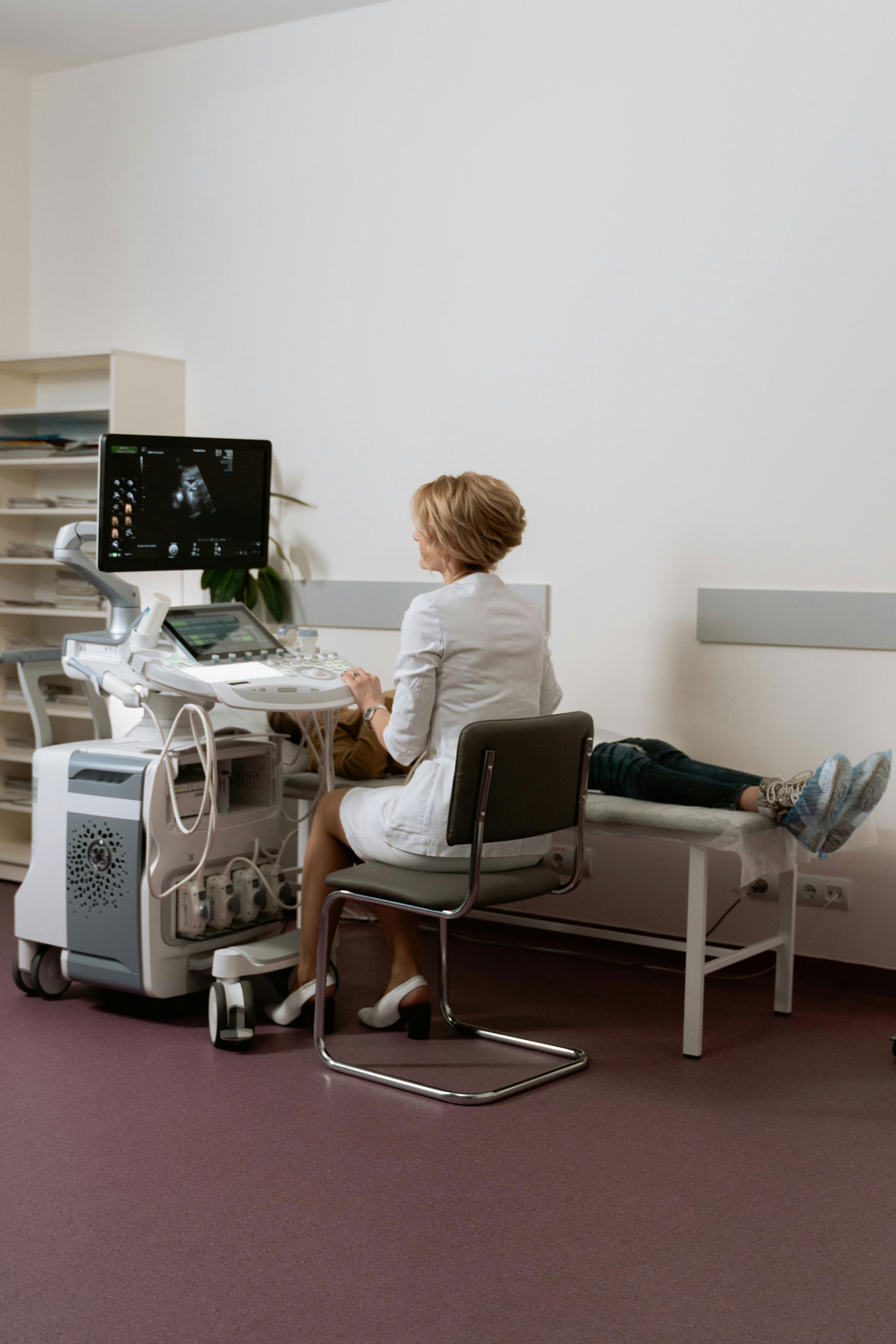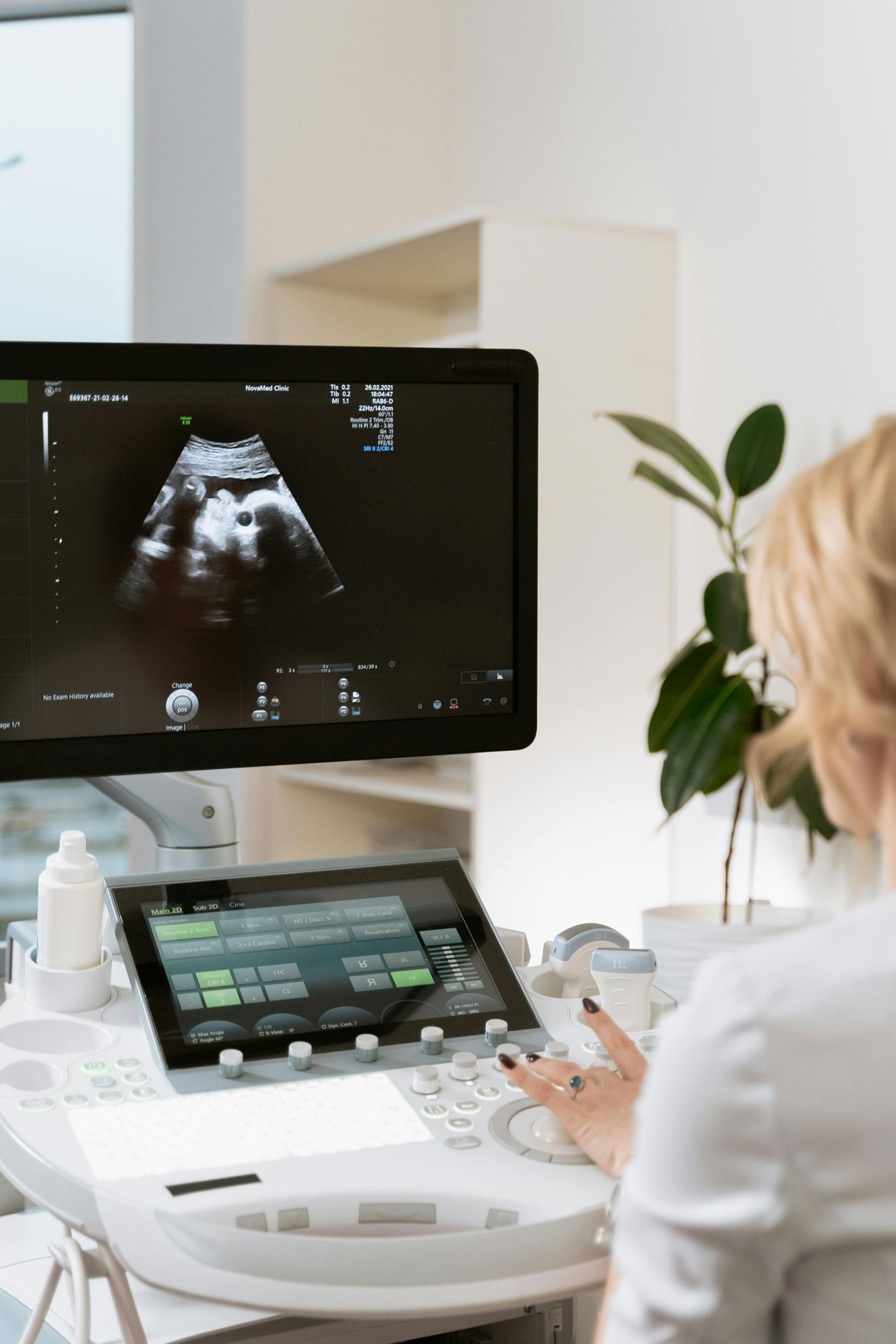BAJA FERTILITY SERVICIES
Artificial
Insemination
ACERCA DE
Artificial Insemination
At Baja Fertility Services, artificial insemination is a safe and advanced technique that increases the chances of conception by introducing sperm directly into the woman’s uterus. This procedure is recommended in various situations and is designed to overcome specific barriers that may hinder natural fertilization.

What is Artificial Insemination?
Artificial insemination is a simple and minimally invasive procedure in which selected and prepared sperm are placed directly into the uterus, bringing them as close as possible to the egg to facilitate fertilization. This method is a popular option for couples experiencing difficulties conceiving naturally.
Indications for Artificial Insemination
Artificial insemination is recommended in the following cases:
Mild Male Factor: When sperm count or motility is below optimal levels.
• Ovulatory Dysfunction: Women with irregular or absent ovulation.
• Cervical Factor: Issues with cervical mucus that hinder sperm movement.
• Physical Ejaculation Difficulties: Including retrograde ejaculation or anatomical anomalies such as hypospadias.
• Mild Endometriosis: Mild cases that may benefit from assisted fertilization.
• Unexplained Infertility: Cases where no specific cause is identified after thorough evaluation.
• Same-Sex Couples and Single Women: Women who wish to conceive using donor sperm.
Artificial Insemination
The artificial insemination process at Baja Fertility Services includes several key stages designed to maximize the chances of success:
1. Initial Evaluation and Planning:
A thorough consultation is conducted to understand the specific needs and conditions of each patient or couple. The most appropriate treatment plan is developed.
2. Controlled Ovarian Stimulation (COS):
Medications are used to stimulate the ovaries and produce multiple mature eggs, thereby increasing the chances of fertilization.
3. Monitoring and Scheduling:
Ultrasounds and hormone tests are used to determine the optimal timing for insemination.
4. Semen Preparation:
The semen sample is collected and processed in the laboratory to select the healthiest and most motile sperm.
5. Insemination Procedure:
The prepared sperm are introduced into the uterus using a thin, sterile catheter in a quick and virtually painless procedure.

Artificial Insemination
KEY BENEFITS
At Baja Fertility Services, we combine the latest in assisted reproduction technology with a compassionate and personalized approach. We are committed to providing you with the highest level of care, helping you achieve your dream of starting a family.
• High Success Rate:
Thanks to advanced technology and the expertise of our medical team.
• Personalized Treatment Plans:
Each treatment is tailored to the specific needs and conditions of the patient or couple.
• Minimally Invasive Procedure:
Quick and with minimal discomfort for the patient.
• Comprehensive Support:
Emotional and medical support throughout the entire process, ensuring a caring and trustworthy environment.
CONTACT
PLAN YOUR VISIT
Book Your Appointment
The first step is to contact us and schedule your consultation.
Prepare Your Medical Information
Gather your medical history and a list of questions to discuss with your doctor.
Attend Your Initial Consultation
Make sure to arrive on time with all the necessary documentation.
CONTACT
BOOK YOUR APPOINTMENT
We are here to support you on your journey to parenthood. Booking an appointment with us is the first step toward receiving the care and support you need.
GET IN TOUCH
If you have any questions or need more information before scheduling your appointment, feel free to contact us. We are here to help.
LOCAL PHONE
664 635-8427
PHONE FROM THE U.S:
001 619 4003830
+52 664 166 9569
info@bajafertility.com
ADDRESS
Torre Norte 2: Fray Servando Teresa de Mier 1351, local 601, Zona Urbana Río Tijuana, Tijuana, B.C.
FAQ
Frequently Asked Questions
What are the causes of infertility?
They can be social or medical in nature. Among the social causes are the delay in seeking to have children and the stress experienced by both men and women in daily life. Among general medical causes, we find extreme obesity, anorexia nervosa, serious illnesses, thyroid disorders, substance and medication abuse, alcohol and tobacco use, and chemotherapy. About 20% of cases remain unexplained.
Medically, the most common conditions affecting women are issues with the Fallopian tubes, ovulation disorders, uterine cavity abnormalities, and endometriosis, among others.
In men, the issues typically involve sperm count, motility, and abnormal sperm morphology.
Is infertility only present in women?
Although many people associate infertility with women, it actually occurs with equal frequency in both men and women.
Do I need to bring my laboratory tests? What are they used for?
It is important. If you have already been in consultation or treatment for infertility, you should bring any tests you have previously undergone, such as hormonal tests, ultrasounds, X-rays (such as hysterosalpingography), semen analyses, among others.
Before starting an assisted reproduction treatment cycle, you will be required to have HIV testing, hepatitis B blood tests, hepatitis C blood tests, and VDRL testing for syphilis.
It is important to bring your test results if you have them; otherwise, the clinic will schedule them on the appropriate days for their performance.
Medically, the most common conditions affecting women are issues with the Fallopian tubes, ovulation disorders, uterine cavity abnormalities, and endometriosis, among others.
In men, the issues typically involve sperm count, motility, and abnormal sperm morphology.
Antes de comenzar un ciclo del tratamiento de reproducción asistida se le pedirá análisis de VIH, de la hepatitis B; Análisis de sangre para hepatitis C. VDRL para prueba de sífilis.
Es importante llevar sus exámenes si los tiene, en caso de no tenerlos en la clínica se programaran en sus respectivos días ideales para realizarse.
En cuanto a lo medico, las situaciones que más se alteran en la mujer son Trompas de Falopio, Ovulación, Cavidad uterina, endometriosis entre otras.
Y en el varón, el numero de esperma, motilidad, formas anormales. De los mismos espermas.
What will happen at my first fertility consultation?
Bring the following with you if applicable:
Make a list of all your questions so you won’t forget them when you are with your doctor.
A history of your fertility (summary of any previous treatments).
If you have undergone fertility treatment elsewhere, you have the right to request a report from that clinic detailing your treatment history.
Blood test results.
Semen analysis results.
Reports from previous examinations such as X-rays or any surgeries you may have had.
The initial consultation lasts approximately one hour, and your partner should attend with you. You should arrive 15 minutes before your appointment to fill out a form and have your vital signs taken before seeing the doctor.
A complete and comprehensive medical history will be taken from both partners, if applicable. A nurse will be present during any gynecological examination. If necessary, the husband will be asked to provide a semen sample for analysis (he can also request to provide the sample later if he is uncomfortable doing so on the day of the appointment).
In which cases is Artificial Insemination recommended?
It is generally recommended when sperm count or motility is low, after failed induction and intercourse treatments, or after endometriosis treatments.
Is age important when undergoing assisted reproduction treatment?
Assisted reproduction has given us greater opportunities to welcome a new loved one into our homes; however, pregnancy is not 100% guaranteed. Age is a very important factor for success. The recommended age range is between 20 and 35 years old. After this age, ovarian reserve begins to decline significantly, reducing the chances of pregnancy and increasing the risk of genetic abnormalities, such as Down syndrome.

